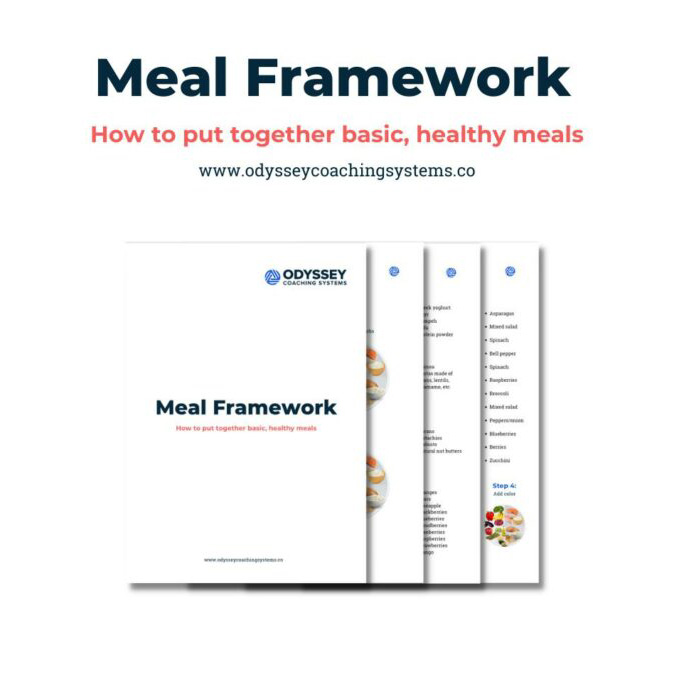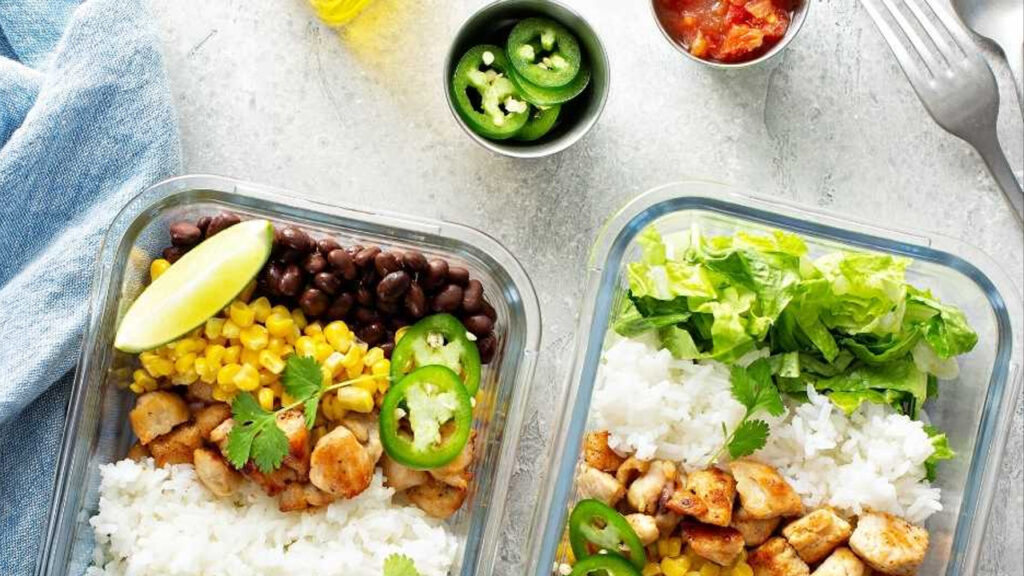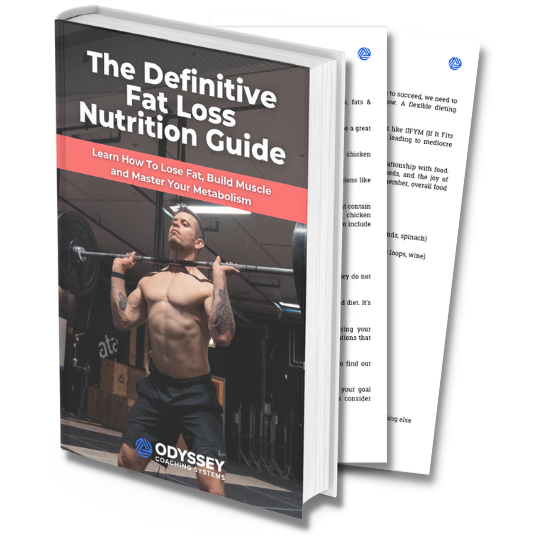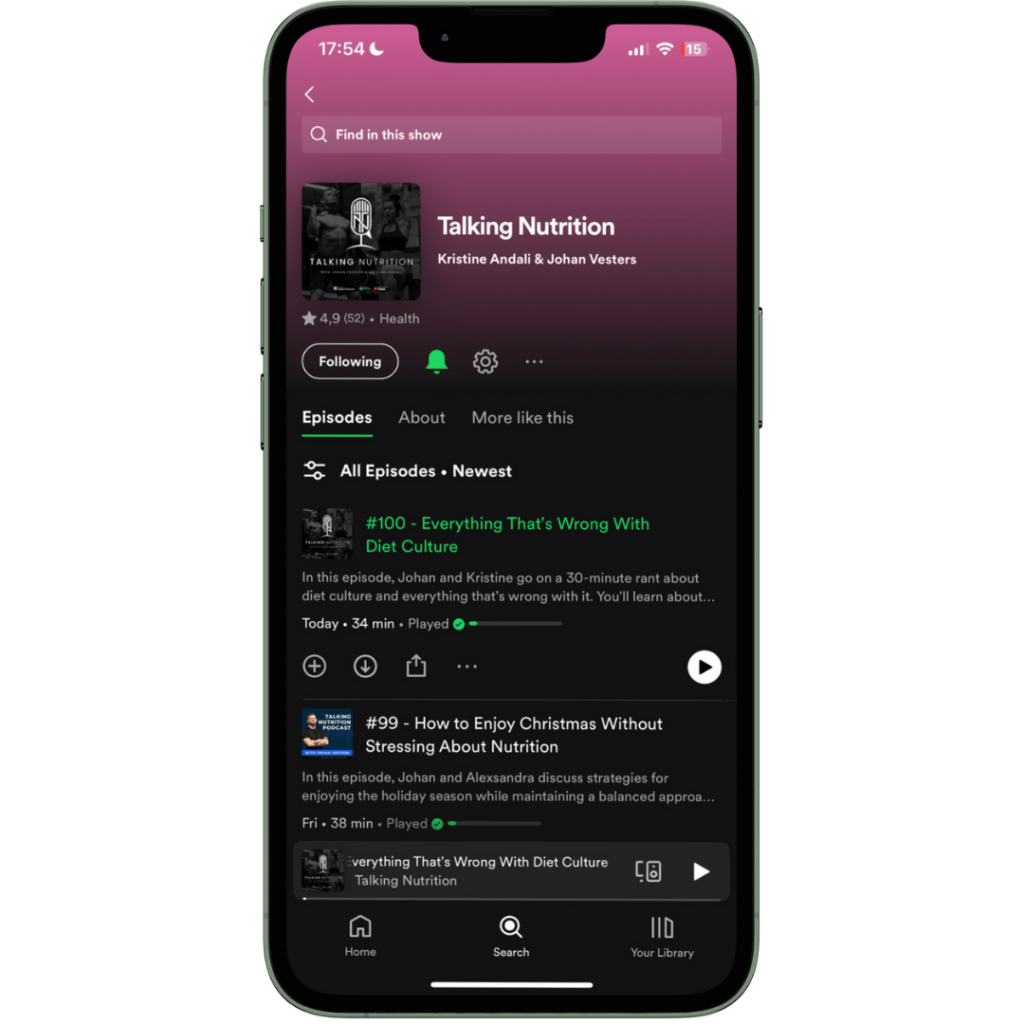The best meal plans are the ones that support any of your health and fitness goals. They allow you to control your energy balance, provide you with the right amount of macros and micros, and most importantly stick to the plan for more than just a few days.
They include plenty of whole foods, allow for flexible foods in moderation. BUT…
They’re NOT found in a dieting app, template, or even a coach for that matter. And that’s because there’s really only ONE best meal plan. And that’s the one made by YOU.
While it’s certainly convenient to follow along with a plug-and-play meal plan, doing so won’t push you to grow and learn. And if you don’t learn from the process, then it’s much less likely to stick.
But hey let’s be honest, a bit of inspiration can be very beneficial. Which is why we’re here.
In this mini-article I’m going to give you two free sample meal plans. One for fat loss, and one for muscle gain.
Pay close attention, because I’d like to reward you for not skipping around. More on that soon..
Figuring out how much you need to eat for your goals
To set you up with a few examples, these free meal plans for fat loss and muscle gain are loosely based on the following expected macro amounts for two different individuals:
Person A:
Female, 26, 65kg,166cm, highly active lifestyle, moderate exercise activity.
Maintenance: 2325kcal, 145g protein, 300g carbs, 60g fats.
Moderate (20%) calorie deficit: 1830kcal, 145g protein, 200g carbs, 50g fats.
Slight (10%) calorie surplus: 2550kcal, 160g protein, 320g carbs, 70g fats.
Person B:
Male, 32, 90kg,184cm. Moderately active lifestyle, moderate exercise activity.
2950kcal, 200g protein, 380g carbs, 70g fats.
Moderate calorie deficit: 2380 200g protein, 260g carbs, 60g fats.
Slight calorie surplus: 3235kcal, 240g protein, 400g carbs, 75g fats.
Meal plan for fat loss A
Female, 26, 65kg,166cm, highly active lifestyle, moderate exercise activity.
Moderate (20%) calorie deficit: 1805kcal, 150g protein, 200g carbs, 45g fats
Breakfast (31g P, 51g C, 14g F):
1x scoop Whey protein powder (mixed in water)
40g Oats
50g Blueberries
35g Chia seeds
Lunch (27g P, 50g C, 15g F):
8x large Shrimps
1x Whole wheat tortilla
30g Corn
30g Black beans
50g Lettuce
0.5x Avocado
Post workout (44g P, 52g C, 10g F):
400g (about 1 container) 2% fat Cottage cheese
25g Rice puffs
1x Kiwi
Dinner (46g P, 48g C, 6g F):
200g Cod
250g Boiled Potatoes
0.5x medium Zucchini
5g Extra virgin olive oil
Meal plan for fat loss B
Male, 32, 90kg,184cm. Moderately active lifestyle, moderate exercise activity.
Moderate 20% calorie deficit: 2405kcal, 200g Protein, 255g Carbs, 65g Fats.
Breakfast (50g P, 52g C, 15g F):
2x scoop Whey protein powder (mixed in water)
40g Oats
50g Blueberries
35g Chia seeds
Lunch (50g P, 86g C, 30g F):
16x large Shrimps
2x Whole wheat tortilla
30g Corn
30g Black beans
50g Lettuce
1x Avocado
Post workout (56g P, 70g C, 12g F):
500g (about 1 container) 2% fat Cottage cheese
40g Rice puffs
1x Kiwi
Dinner (46g P, 48g C, 6g F):
200g Cod
250g Boiled Potatoes
0.5x medium Zucchini
5g Extra virgin olive oil
*Community Exclusive – Click here to join our private fat loss community

Meal plan for muscle gain A
Female, 26, 65kg,166cm, highly active lifestyle, moderate exercise activity.
Slight (10%) calorie surplus: 2485kcal, 155g protein, 320g carbs, 65g fats
Breakfast (38g P, 93g C, 9g F):
300g Skyr non-fat yogurt
80g Quaker Simply Granola Oats
1x Kiwi
Lunch (31g P, 40g C, 19g F):
200g Scrambled tofu
40g Quinoa
1 medium Bell pepper
5g Extra virgin olive oil
Post-workout (40g P, 114g C, 15g F):
40g Protein powder
90g Fruit loops
1x Banana
20g Peanut butter
Dinner (46g P, 72g C, 22g F):
150g Salmon
300g Sweet potato
200g Mixed vegetables
10g Extra virgin olive oil
Meal plan for muscle gain B
Male, 32, 90kg, 184cm. Moderately active lifestyle, moderate exercise activity.
Slight (10%) calorie surplus: 3235kcal, 240g protein, 400g carbs, 75g fats
Breakfast (57g P, 108g C, 19g F):
300g Skyr non-fat yogurt
80g Quaker Simply Granola Oats
1x Kiwi
Lunch (71g P, 92g C, 20g F):
200g Chicken breast
300g White rice
1 medium Bell pepper
10g Extra virgin olive oil
Post-workout (53g P, 104g C, 10g F):
60g Protein powder
90g Fruit loops
1x Banana
20g Peanut butter
Dinner (61g P, 92g C, 27g F):
150g Salmon
300g Sweet potato
200g Mixed vegetables
10g Extra virgin olive oil

How to add more variety to your meal plans
These meal plans should give you a good idea of what your nutrition could look like.
Please know that none of these foods or meals are special in any way. If you’d like to swap any meats for fish, or plant based alternatives like tofu or soy products, go for it!
Also feel free to play around with different fruits, veggies, starchy carbs, and fat sources.
Hell, you could even swap some whole foods for a more processed option or the other way around. Just remember that context does matter (80/20)!
No food is inherently good or bad.
No food will cause fat loss on its own.
And no food lead to muscle growth by itself.
Other than differences in calories there’s no special meal plan for fat loss or muscle gain (assuming you got your proteins covered).
Which is good news, because that means you can swap things around to create your own plan based on the things YOU like.
Pro tip: use different combinations of herbs and spices.





